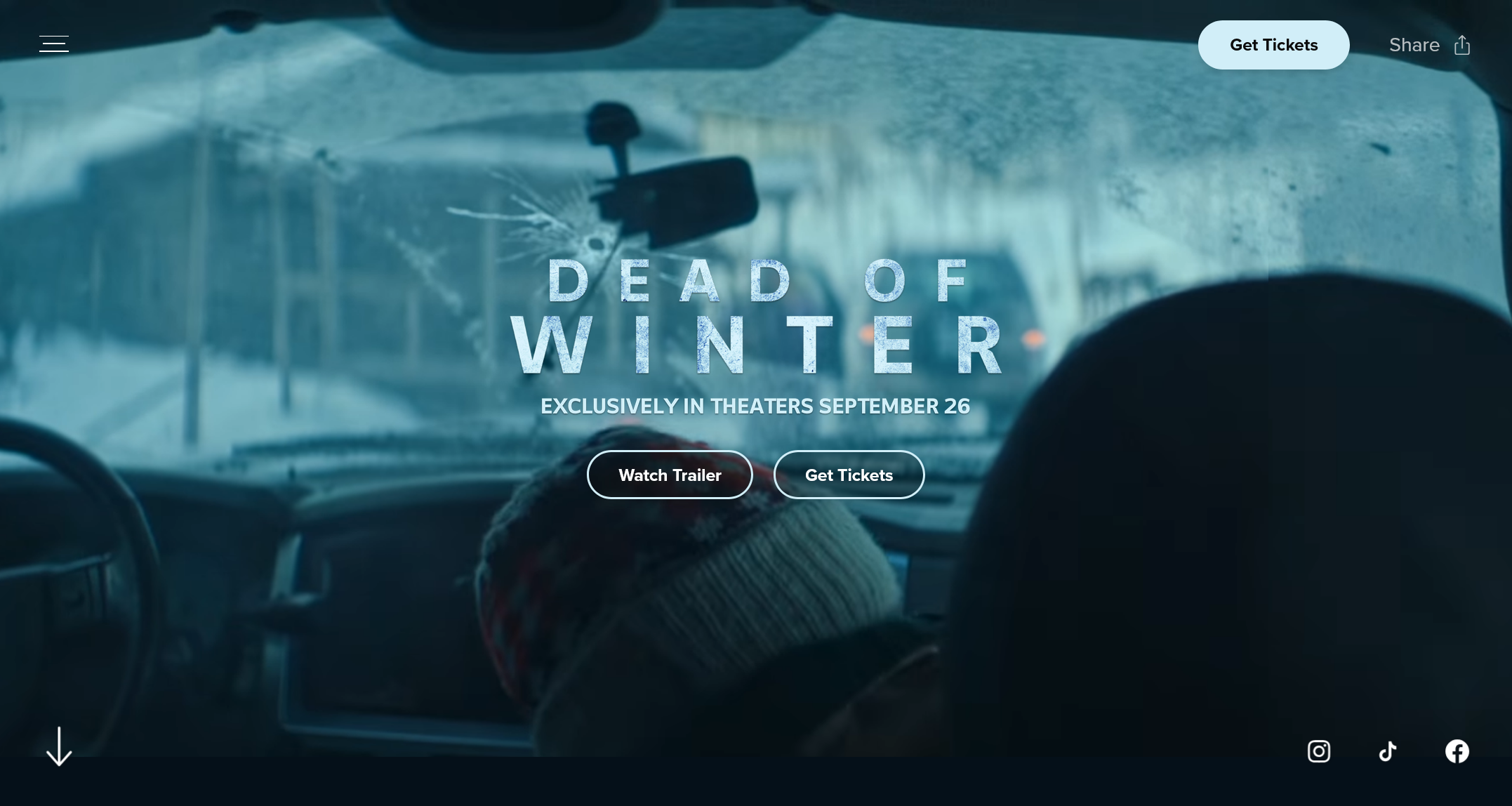I repeatedly considered walking out of Dead of Winter, which I think is worse than most credible critics think.
This movie, which is written by Nicholas Jacobson-Larson and Dalton Leeb and directed by Brian Kirk, is a story about a widow named Barb (Emma Thompson) who is driving in snowstorm to scatter her late husband’s ashes on the lake where they had their first date when she decides to intervene in a kidnapping. The married kidnappers (Marc Menchaca and Judy Greer) hope to extract a kidney from their hostage (Laurel Marsden), who has previously attempted suicide, and are thwarted by Barb, who eventually drags the remaining kidnapper to her, and their, watery death.
The casting suggests aspirations for something substantial. Thompson in an interview about this movie called for more female heroes presumably of a certain age on the big screen, and suggested that female heroism is existentially essential.
Thompson isn’t wrong. She just has the wrong project. The scenery-chewing performances make some scenes in this movie difficult to watch, but these only make a flawed script seem worse.
Barb’s accent might be distracting, but her strength is implausible. This senior citizen can bust through a locked basement door, tumble down a flight of stairs, and exhibit no effects. Elsewhere, she fashions a needle from a fishing hook with one good arm to stich a bullet hole in her other one and later can lift a water heater or some other large appliance high enough to slip her handcuff beneath its leg.
Her motivation is no more clear than it is for the other characters. Why would Barb for example go to this lake in the middle of a snowstorm, and not wait until it had subsided if not until the ice had thawed? Even their first date — ice fishing when she was much younger — hadn’t occurred in a snow storm.
Barb’s actions are bewildering. For instance, she has the foresight early in the movie to write backwards on a frosted window to communicate with the young woman who has been imprisoned in the basement, which obviously makes it easier for her to read, but doesn’t think to erase it, which later reveals her presence to the kidnappers.
Barb decides to spare one of the kidnappers, who has hypothermia after falling into the hole in the lake she cut and hid, after he agrees to drive to the police before the hospital. In response, he donates additional ammo presumably in gratitude for her risky decision or an affirmation of his intentions or both. Barb, who has realized that she needs more bullets, nonetheless fires blindly beneath a vehicle at this kidnapper’s wife, and only strikes her in the leg, which slows but doesn’t stop her.
Instead, this kidnapper forces Barb to help her take the victim to her makeshift surgical ward atop the icy lake, which happens to be near the fishing cabin Barb had earlier erected. This kidnapper, who has earlier killed her husband after finding him driving away, seems intent upon harvesting her victim’s liver by herself after she also shoots Barb with a rifle in the chest.
Audience members who circumnavigate these script holes eventually arrive at the final confrontation, which concludes when Barb manages to drag the kidnapper into the same hole where the kidnapper’s husband previously had fallen. We never see the victim who nearly lost her liver try to save her savior, who nonetheless manages to open the tackle tin that had previously saved her life — the bullet is buried in her husband’s ashes — and release these ashes that have been hidden beneath the top layer of lures and line.
We’ve never learned why this victim had wanted to kill herself or worse why late in the movie she announces a newfound desire to live. We do watch her as the sole survivor discover a photo of Barb and her late husband from her fateful first date years earlier, which mercifully releases us from this cringe-worthy movie.
Dead might be a B-movie, but that doesn’t absolve it from any and all obligations to its audience.

Leave a Reply